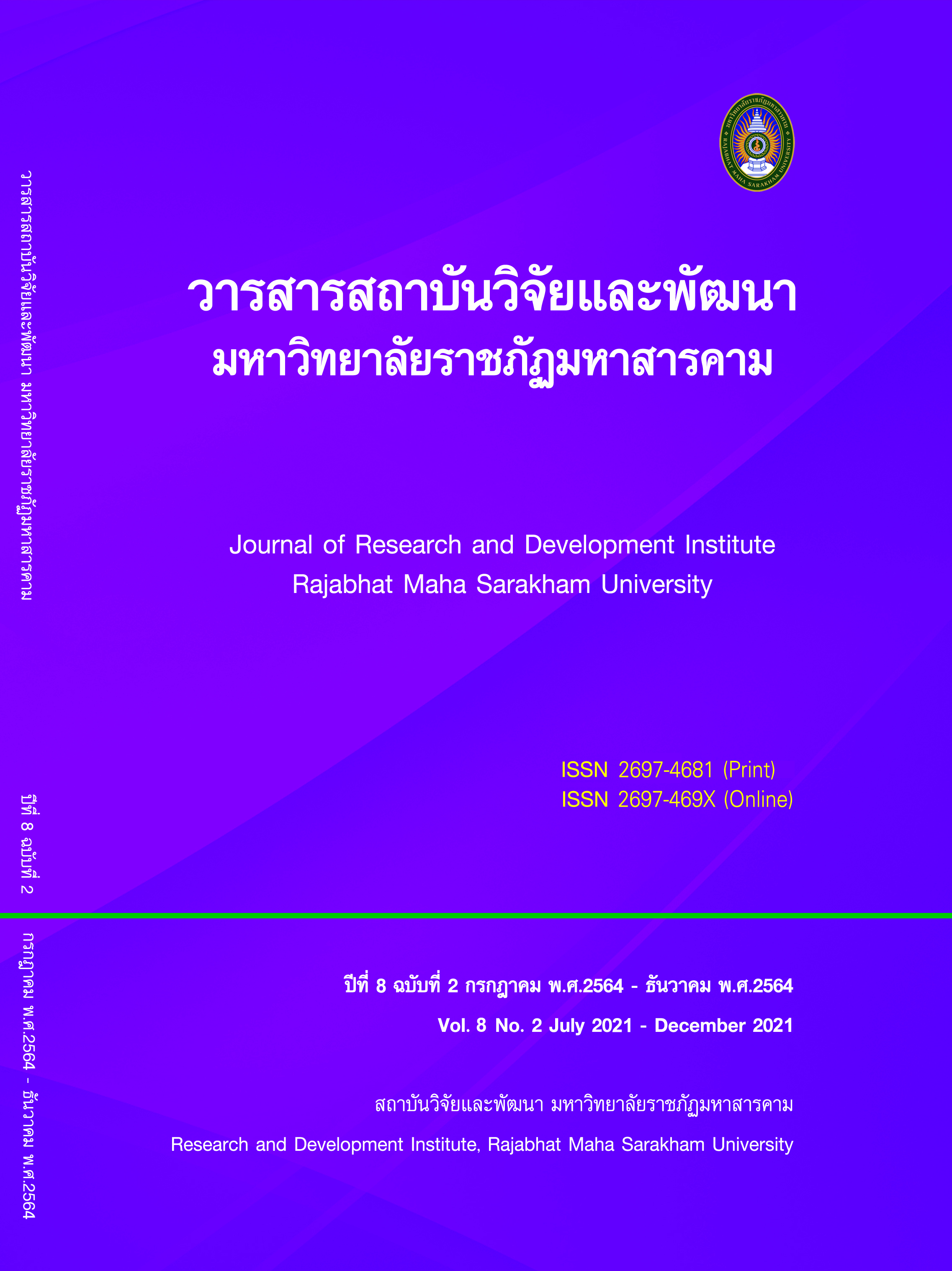Relationship between Marketing Segments the satisfaction and Loyalty of Agricultural Tourists in chaiyaphum Province
Keywords:
Marketing Compound, Satisfaction, LoyaltyAbstract
This research aims to test the relationship between marketing segments. The satisfaction and loyalty of agricultural tourists in Chaiyaphum province. A sample of 420 samples used in the research. The data collection tool is a query. The sample is an agricultural tourist who travels in Chaiyaphum province. Statistics used to analyze data include averages, standard deviations, and structural equation model analysis. Analysis of data by descriptive statistics and content analyss. The research results were found as follows;
The results of the objective results showed that the results of the market analysis influence the satisfaction and loyalty of agricultural tourists. The model is consistent with empirical data and the results of the hypothesis test, accepting all assumptions. The marketing compounds have a direct influence on satisfaction with a weight of 0.92. Marketing compounds have a direct influence on loyalty with a weight of 0.63. Satisfaction has a direct influence on loyalty, with an influence weight of 0.39. Statistically significant at the level of 0.01.
References
Arugsomboon, P. (2012). Causal Factors Influencing to Loyalty to Thai Ecotourism. Journal of Interdisciplinary Research: Graduate Studies. 1(2), 71-80.
Chaiyaphum Provincial Public Relations Office. (2018). Chaiyaphum Province launches agritourism community "Local people take a trip to Chaiyaphum". [Online]. http://nwnt.prd.go.th/CenterWeb/News/NewsDetail. [25 October 2018]
Chen, C.-F., & Tsai, D.C. (2006). How destination image and evaluative factors affect behavioral intentions? Tourism Management 28, 1115-1122.
Chen, Y. & Xic, J. (2007). Cross-Market Network Effect with Asymmetric Customer Loyalty: Implication for Competition Advantage. Marketing Science. 26(1), 52-56.
Cronbach, L. J. (1970). Essential of Psychology testing. (3rd ed.). New York: University of Chicago.
George, Darren, and Paul Mallery. (2003). SPSS for Windows Step by Step: A Simple Guide and Reference. (4th ed). Boston: Allyn & Bacon.
Hair, J. F., Anderson, R. E., Tatham, R. L., & Black, W. C. (1998). Multivariate Data Analysis (5th ed.). Upper Saddle River, New Jersey: Prentice-Hall.
Jaima, S and Pathomsirikul, Y. (2020). Service Marketing Strategies Model of Thai Traditional Medicine and Alternative Medicine Centers of Public Hospital in Thailand. Journal of Rangsit Graduate Studies in Business and Social Sciences. 6 (1), 42-62.
Kasikorn Research Center. (2014). Health tourism business opportunities for Thailand to penetrate the ASEAN market. [Online] http://www.ksmecare.com/Article/82/28465/. [26 October 2018]
Muangmee, C, Soonsawad, N, Kijrrrungroijarea, p, Panyasupat, R and Bunuam, R . (2018). Tourist destination loyalty model for Samutsongkhram province. Journal of Humanities and Social Sciences Thonburi University. 13 (2), 125-137.
Office of the National Economic and Social Development Board. (2012). The 11th National Economic Development Plan. Bangkok : Office of the National Economic and Social Development Board.
Tourism Authority of Thailand. (2014). Meaning and types of tourism. [Online]. http://tourism.go.th/ [25 July 2018]
Trakulmukthong, p. (2016). Service Marketing Mix Strategy Effecting the Perceived Service Quality and Loyalty of Foreign Tourists in Thai Health Tourism. RMUTT Global Business and Economics Review, 11 (2), 116-128.
Downloads
Published
How to Cite
Issue
Section
License
Copyright (c) 2021 Journal of Research and Development Institute Rajabhat Maha Sarakham University

This work is licensed under a Creative Commons Attribution-NonCommercial-NoDerivatives 4.0 International License.
Articles that are published are copyrighted by the authors of the articles







